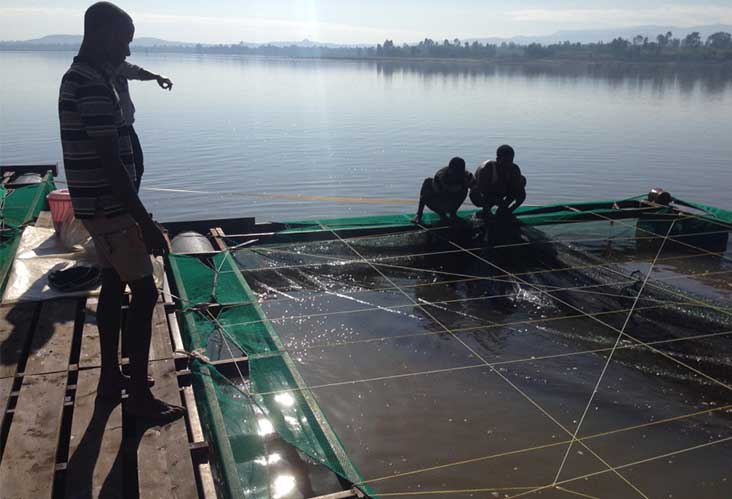
Fortune News | Apr 28,2024
Sep 3 , 2022
By RAHEL BOGALE ( FORTUNE STAFF WRITER )
Federal authorities are to play tough on privileges granted to travellers who can bring duty-free items into the country for personal use.
Experts at the Ministry of Finance have finalised a stricter directive encroaching on these privileges they relaxed four years ago. The Customs Commission suspended the privileges six months ago, claiming that travellers have abused them.
Habtamu Menesha, Finance Ministry’s director for legal affairs, says the privilege contributed to the increase in illicit and contraband trade, creating an uneven playing field for legitimate businesses.
“Lawful traders were unable to compete and survive in the market,” he told Fortune.
The previous directive was suspended following complaints to federal authorities who have exempted over 250 items such as professional cameras, external hard drives, laptops, kitchenware, and TV sets from duty. The Commission seized contraband goods valued at 4.3 billion Br last year. Electronics accounted for a third of the smuggled items.
Although the directive exempted airline passengers from paying duties on personal items brought in for non-trade purposes, the privilege evolved into a scapegoat to avoid paying duties, according to Habtamu. A Federal Ethics & Anti-Corruption Commission report reveals that one-third of the duty-free privileges and tax exemptions were open to abuse.
The escape clause allowed people to avoid the full force of the law without directly violating it, according to Yehualashet Tamiru, a legal consultant and researcher.
The preceding directive was prepared using what experts in the field characterise as “a positive list” approach. It granted duty-free privileges for most personal items, with few goods listed as exceptions. The drawbacks forced them to revert to “a negative list” approach during their revision. The draft proposes granting duty-free privileges to no more than 16 personal items. Goods not listed are, by default, excluded from the privilege.
Travellers can bring a laptop, a camera and two litres of alcoholic beverages. Customs officials will allow travellers to bring in clothes and shoes deemed sufficient for families. Those returning after spending a year or longer abroad will be allowed to bring their belongings duty-free, according to the draft.
Officials say the experience of African countries such as Kenya and Tanzania was used as a benchmark to revise the directive. The new rules are expected to take effect in the coming week.
The changes are bad news for those in the lucrative but illicit “luggage trade.”
Yehualashet contends the new directive imposes unnecessary requirements on travellers. Those who return after spending a year or more abroad are demanded to submit proof of stay from Ethiopia’s embassies and missions. The draft decrees that receivers of items sent from abroad as gifts will be required to show their taxpayer identification number (TIN) to customs officers before they are granted permission to collect the items without paying duties.
“TIN is specified as a requirement to verify the receiver’s identity,” said Habtamu. “If receivers are found to be traders, they will be required to pay duties.”
PUBLISHED ON
Sep 03,2022 [ VOL
23 , NO
1166]

Fortune News | Apr 28,2024

Sunday with Eden | Aug 10,2024

Fortune News | Aug 03,2019

Fortune News | Jun 13,2025

Radar | Jun 30,2024

Fortune News | Aug 01,2020


Fortune News | Aug 18,2024

Radar | Sep 29,2024

Fortune News | Nov 24,2024

Dec 22 , 2024 . By TIZITA SHEWAFERAW
Charged with transforming colossal state-owned enterprises into modern and competitiv...

Aug 18 , 2024 . By AKSAH ITALO
Although predictable Yonas Zerihun's job in the ride-hailing service is not immune to...

Jul 28 , 2024 . By TIZITA SHEWAFERAW
Unhabitual, perhaps too many, Samuel Gebreyohannes, 38, used to occasionally enjoy a couple of beers at breakfast. However, he recently swit...

Jul 13 , 2024 . By AKSAH ITALO
Investors who rely on tractors, trucks, and field vehicles for commuting, transporting commodities, and f...

Jul 5 , 2025
Six years ago, Ethiopia was the darling of international liberal commentators. A year...

Jun 28 , 2025
Meseret Damtie, the assertive auditor general, has never been shy about naming names...

Jun 21 , 2025
A well-worn adage says, “Budget is not destiny, but it is direction.” Examining t...

Jun 14 , 2025
Yet again, the Horn of Africa is bracing for trouble. A region already frayed by wars...